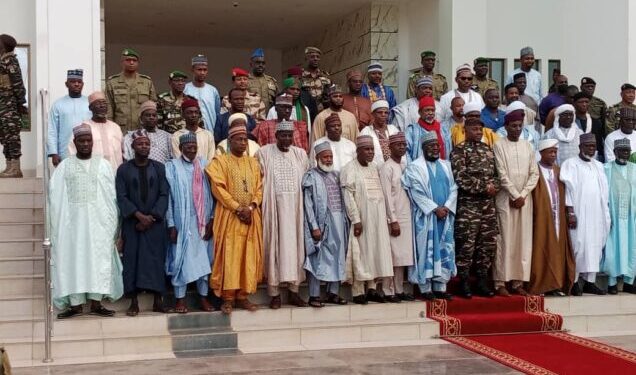In a significant diplomatic initiative, a delegation of prominent Islamic scholars from Nigeria recently engaged in talks with coup leaders in Niger to address the ongoing political crisis. The meeting, held in Niger’s capital, Niamey, aimed to promote dialogue as the primary means of resolving the turmoil that has gripped the nation.
Led by Sheik Bala Lau, the Islamic Ulammas delegation comprised esteemed figures from Nigeria’s religious community. The scholars were acting on behalf of President Bola Tinubu, who is not only Nigeria’s President but also the Chairman of the Authority of ECOWAS Heads of State and Government.
During the discussions, the delegation and General Abdourahmane Tchiani, the leader of the coup, delved into critical matters, including the demand by ECOWAS leaders for the restoration of former President Bazoum. The scholars advocated for the political impasse to be resolved through peaceful dialogue, urging military leaders behind the coup to embrace peaceful negotiations instead of resorting to conflict.
Sheik Lau emphasized the importance of finding a peaceful solution and presented the delegation’s mission as one that encouraged reconciliation and the avoidance of violence. General Tchiani welcomed the intervention and expressed his belief that the coup had been executed to counter an imminent threat that could have affected both Niger and neighboring Nigeria.
Acknowledging a lapse in the initial response to the delegation sent by President Tinubu, General Tchiani extended his apologies and expressed appreciation for the scholars’ involvement. He highlighted the deep historical ties between the two countries, portraying Niger and Nigeria as not only neighbors but also siblings obligated to resolve disputes amicably.
Speaking to journalists after the meeting, Sheik Ahmad Abdulrahman, a member of the intervention team and the Chief Missioner of Ansarudeen Society of Nigeria, clarified that the encounter was mutually respectful and productive. He refuted reports suggesting any negative reception, confirming that both sides engaged in fruitful discussions.
The scholars concluded their mission by vowing to report their findings to President Tinubu and urging that the pursuit of peace takes precedence over any potential conflict. The diplomatic endeavor underscores the commitment of Nigeria’s leadership to fostering stability in the region and promoting peaceful resolutions to political crises.
As tensions persist in Niger, the efforts of the Nigerian Islamic scholars to mediate and encourage dialogue mark a step toward finding common ground and averting further escalation of the crisis. The successful engagement demonstrates the potential for diplomatic initiatives to play a crucial role in resolving complex political situations.











